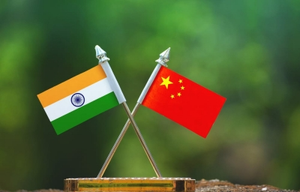America
Relations with China: US Extends Best Wishes to India in Tackling 'Fundamental Challenges

June 14 :
The number-two US official expressed well wishes to India on June 12 as the country seeks to mend fences with China, but warned that Chinese leader Xi Jinping is extremely rigid when it comes to territorial disputes. After taking office for a second consecutive term on June 11, Indian Foreign Minister Subrahmanyam Jaishankar stated that India would prioritise resolving border disputes with China, which have caused long-standing tensions between the two neighbours.
In response to Jaishankar's remarks, a Washington think group contacted US Deputy Secretary of State Kurt Campbell about them. Campbell has spearheaded US attempts to strengthen ties with India in response to China's rising influence.
The reality, he continued, is that we must back efforts by two nations to establish some common ground in order to lower tensions.
He continued by wishing the Indians well in their discussions and stating that the United States was "extremely confident and comfortable" with its bilateral relationship with India, which it hoped would continue in the future.
Next week, Campbell and US national security advisor Jake Sullivan will visit India to "advance areas of coordination," according to Campbell.
While expressing his optimism for the collaboration, he did note that there are "structural issues" between India and China that would be challenging to address.
According to Campbell, if India wants better ties with China, or even just a little improvement, Beijing needs to stop treating its disputed borders the way India does.
"One of the things that we've seen under Xi Jinping on anything that bridges, or touches, territorial matters, I think it's very hard for the Chinese to show any flexibility, or any desire to find common ground," said the president.
The nuclear-armed nations of India and China went to war in 1962 over a 3,800 km (2,400 mile) boundary, most of which was not clearly delineated. They have been involved in a military standoff since July 2020, when the deadliest battles in fifty years occurred, killing at least twenty Indian soldiers and four Chinese troops. Despite its differences on matters like human rights, Washington has tried to strengthen its ties with India.



































